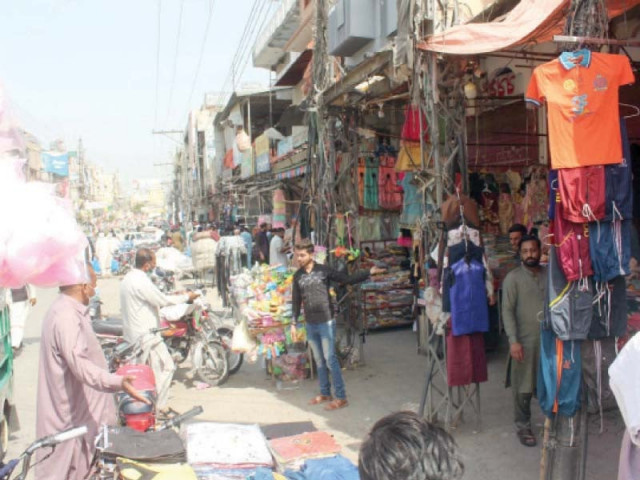‘Ghost’ flour shops suspected
Food director orders verification of licensed outlets of subsidised commodity

The Punjab Food Department, other provincial authorities and intelligence agencies suspect as many as 8,000 'ghost shops' claiming to sell government subsidised wheat flour, causing loss to the public exchequer and shortage of subsidised flour in the markets.
According to sources, the authorities estimate that over 30 per cent of the 26,700 shops having food grain licences in the province did not sell flour but kept false record of the sale.
In view of reports of the malpractice, Punjab Food Director Shozeb Saeed has ordered all deputy directors and district food controllers to scrutinise within 15 days all the shops licensed to receive subsidised flour. The food department has also requested the Punjab Urban Unit to expedite work on an ongoing project for geotagging the licensed shops.
Shopkeepers dealing in wheat flour in Punjab are legally required to obtain a Food Grain Licence from the provincial food department. Only after obtaining the permit are they allowed to buy flour from the mills and sell it in retail.
However, due to a wheat and flour crisis that has been going on for several months in Punjab and a sharp increase in the price of flour, a large number of smugglers and profiteers have reportedly entered the business.
The sources said the department faced pressure to issue the licences on the recommendation of influential political and official figures.
As many as 26,700 shopkeepers have obtained the licences across Punjab, but the food department suspects that about 8,000 of them are bogus.
The revelations came after random inspection of some flour shops existing on the government list.
In some instances, the shop was not present at the registered address, while in other cases, other business were being operated there. During the checking of some licensed shops, it was found that there was no electric connection.
The sources revealed that some flour mills had acquired fake shopkeepers' licences to hide under-grinding and supply of government flour by making bogus entries in the computerised dashboard of the food department.
The flour, or part of it, remains with the mill but its supply is declared on the dashboard.
In view of the possible misappropriation, the department started the project of geotagging of the licensed shops in collaboration with the Punjab Urban Unit, but it is moving at a snail's pace, the sources said.
In view of the situation, the provincial food director has reportedly sent a letter to all the divisional deputy directors for immediate identification of ghost shops after complete physical scrutiny within 15 days. Physical verification of every licensed shop will be done during the scrutiny, while the sale of flour will be verified from the stock record.
The licence will be rechecked along with the owner's national identity card, while the daily supply from flour mills will also have to be verified.
The director said while talking to The Express Tribune said that the food grain licences found bogus or fake during the scrutiny would be canceled immediately and strict action would be taken against the shopkeepers involved in such cases.
He said it had been decided that strict conditions would be imposed for the issuance of licences.
Published in The Express Tribune, October 14th, 2022.



















COMMENTS
Comments are moderated and generally will be posted if they are on-topic and not abusive.
For more information, please see our Comments FAQ